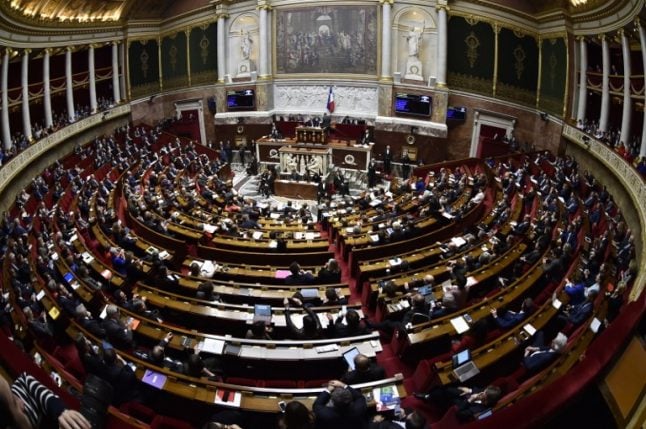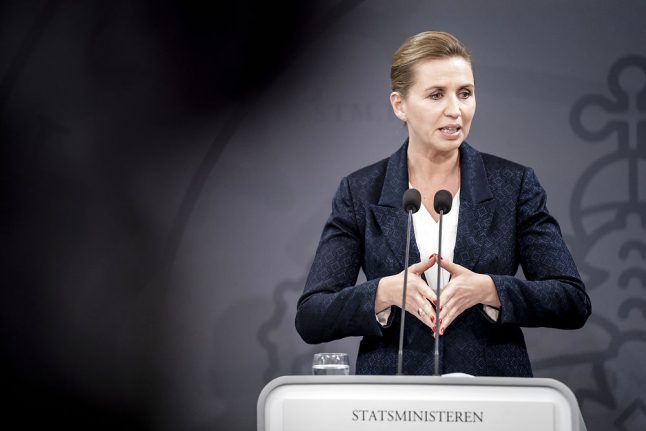PARLIAMENT
French parliament to shrink as government set to slash third of MPs and senators
The French government has vowed to reduce the number of MPs and senators by 30 percent by 2019, following through on a pledge made by French President Emmanuel Macron during his election campaign.
Published: 5 April 2018 16:41 CEST

A general view of the National Assembly taken during a session of questions to the government in Paris. Photo: AFP
French Prime Minister Edouard Philippe has announced the government's plans to cut the number of lawmakers, including MPs and Senators by one third by 2019.
It means the number of MPs in the French National Assembly will drop from 577 to 404 and the number of Senators will also drop from 348 to 244.
The number of deputies and senators will be reduced by 30 percent “under conditions that guarantee the representation of all departments and territories,” said Philippe.
However not everybody is for the change, with some MPs warning of the risk of the electorate becoming disconnected with parliament.
“There must be between 20 and 25 percent [fewer parliamentarians] but 30 percent is not possible” because it “would sacrifice the most fragile territories,” senator for right-wing party Les Republicains, Bruno Retailleau told the French press.
Philippe also announced on Wednesday that in the legislative elections in 2022, 15 percent of MPs (61 out of 404) would be elected by proportional representation, the system which sees parties gain seats in proportion to the number of votes cast for them.
It is believed that reform could enable smaller parties like the far-right National Front to gain more MPs to reflect the number of votes they are given nationwide.
In fact, according to a projection of what this would mean for the election results by France Info, the National Front would increase its representation to 3.4 percent of seats from 1.4 percent), which translates to 14 elected members compared to eight at present.
Meanwhile, on the other side of the political spectrum, the Socialist Party and other left-wing parties would get 8.1 percent of the seats, against 7.8 percent at present.
However Macron's La République en Marche party and its ally MoDem would lose some of their representatives, dropping to 56.8 percent of seats compared to the 60.7 percent they have today.
Meanwhile the Republicans, the centre-right UDI party and various right wing parties would get 23.7 percent of seats against 23.6 percent currently.
The changes are part of a vast project proposed by French President Emmanuel Macron during his election campaign and announced in a speech to a gathering of the country's lawmakers in July 2017.
However at the moment it's all matter of guess work, with the new version of the electoral map not yet unveiled.
Last year, Macron told around 900 MPs and senators who had gathered at Versailles that he wanted a one-third reduction in the number of lawmakers in both houses of parliament.
Macron said the change — which he proposed while running for president — would have “positive effects on the general quality of parliamentary work”.
When it comes to reducing the number of parliamentarians, Emmanuel Macron pledged in 2017 that all territories, including overseas territories, would be included in the cuts.
He also warned lawmakers that a referendum would be called if they do not agree to the changes.
Url copied to clipboard!


 Please whitelist us to continue reading.
Please whitelist us to continue reading.